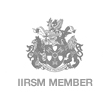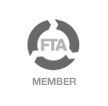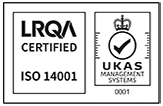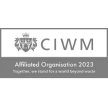
When we put our recycling out for collection, we might get a satisfying feeling that we’re doing our little bit for the health of the planet. But not all the items we put in the recycling bin will end up being recycled. Here’s why…
What is recycling contamination?
Recycling plants are increasingly sophisticated and able to sort and process recyclable material effectively. But when non-recyclable items get mixed up with recyclable products (or recyclable items are put into the wrong recycling bin) they can’t be processed. Dirty recycling, contaminated with food, grease or liquids can’t be recycled either. And partly recyclable items, such as children’s car seats, where certain components are recyclable, and others are not, can also contaminate recycling.
What happens to contaminated recycling?
If recycling is contaminated, it could be diverted to landfill. In 2018, UK councils sent over 500,000 tonnes of recycling to landfill because it was contaminated. Here, it may take more than 400 years to degrade before it breaks down, and when it does, it can contaminate soil and water. Alternatively, contaminated recycling could be sent overseas. In 2018, the UK exported 611,000 tonnes of plastic packaging to countries such as Malaysia. When outside of UK jurisdiction, it’s not guaranteed how it will be treated – if it’s deemed low-quality recycling, it could end up in landfill. There’s also high plastic pollution in the ocean around Malaysia.
How can you avoid recycling contamination?
There are easy ways to help reduce recycling contamination.
- Rinse containers before putting them in a recycling bin. Don’t throw containers away that still have food or liquid in them, as recycling must be clean and dry. Greasy pizza boxes are a common contaminant too.
- Don’t recycle plastic bags, polystyrene, plastic film, garden hoses or shower curtains. These are some of the biggest culprits of damaging recycling machinery because they get wrapped around the equipment. Often this is driven by an overenthusiasm to recycle, dubbed ‘wish-cycling’.
- Check and sort your recycling before you throw it. For example, after celebrations, make sure wrapping paper (recyclable) is free from Sellotape (non-recyclable), and make sure the lids of bottles are recyclable in your area too.
- Double-check what can and can’t be recycled in your area using Recycle Now’s tool. A common culprit of recycling contamination is receipts. They’re printed on thermal paper which is not recyclable and contain BPA and BPS chemicals. If recycled, these potentially harmful chemicals could be released into the environment. The solution to this looks like it will be a rise in digital receipts.
What happens to recyclable materials in a skip?
When you hire a skip from Rabbit, we sort the materials that come back to us. We remove plastics and send them to specialist plastic processors. We send metals to metal merchants. Soil, bricks and hardcore are sent to the construction and aggregate industries.
What can’t be recycled is incinerated in our Energy from Waste facility that generates green energy. But you can still help us maximise the volume of waste we recycle by ensuring bottles are empty of liquids and cardboard is free from plastic film, for example.
To find out more about skip hire in West Sussex and our Energy from Waste Facility, contact Rabbit. Reach us on 01903 762020 or email info@rabbitgroup.co.uk.




